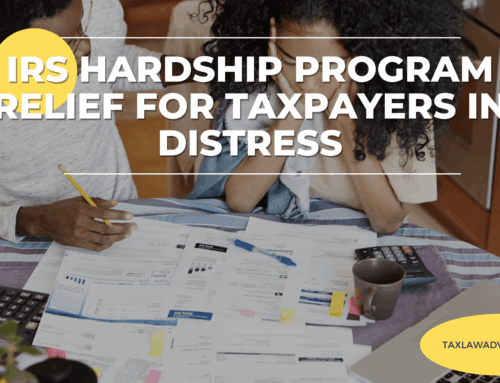If you haven’t filed your income tax this year or the previous year/s, your best recourse is to file it as soon as possible.
The reasons for not filing your income tax do not matter to the process. The IRS offers several tools and personal income tax resources, including the Interactive Tax Assistant, to get you started on the right track.
What Not Filing Income Tax Might mean
There are several possible consequences if you have not filed your income tax this year or for several years:
- As a taxpayer, you may be subjected to different penalties, including the failure-to-file penalty. This may be avoided if you have a good and reasonable cause to file your taxes on time.
- Taxes that have not been paid by their due date may also result in the failure-to-pay penalty. Some penalties, again, can be avoided if you have can offer a reasonable cause to the IRS. You can also send an application to extend the time to pay your taxes because of undue hardship. You can begin by filling up Form 1127.
- The IRS imposes interest on taxes not paid on their due dates. The interest rates apply even if you have used for and have been approved for an extension to pay your taxes.
Should your current tax debt have penalties, those penalties will also have corresponding interest rates.
- If you have an upcoming refund, you will not be charged a penalty for failure to pay. There is a risk of losing the present tax refund if you file the return.
You can also lose the refund when the statute of limitations has already expired. If you are claiming a refund after a return, this has to be done within three years of the original date you are due for the repayment.
After these three years, the statute of limitation prevents the taxpayer from claiming a refund. You will also be prevented from applying for any further credits.
Restrictions include any overpayments that may have been made and withholding taxes. This further extends to other tax years where you may have underpaid your federal income taxes.
Before any considerations can be made about unpaid taxes, the taxpayer has to file first. There is no statute of limitation that applies to the IRS in the context of discovering, assessing, and collecting unpaid taxes from businesses and individual taxpayers.
Understanding the IRS’ Substitute Return
You are a freelance graphic artist, and you accept different projects from various agencies and clients. You neglected to file your 2019 and 2020 tax returns because of a death in the family and several other hardships. All your clients are sending their 1099-NEC forms to the IRS to you and the IRS as well.
The original 1099-NEC forms all go to the IRS. Eventually, the tax returns that you haven’t filed will be noticed by the IRS system. What the IRS system will do in the process is it will pull up all your existing tax documents, including tax returns from the previous years that you have filed taxes.
The IRS will then use all these existing data to compute or calculate the tax that you owe the government. When the calculations are finalized, the IRS will send you a letter that states you owe a certain amount of dollars to the IRS, based on the information they already have.
When the IRS mails an assessment to you, that already means that they have pre-determined how much you owe based on your existing W-2 and 1099 forms. Other tax documents (including the old ones) may also be used in the computation of your taxes.
The two main options for taxpayers are:
Petitioning the Tax Court must be completed within ninety days after receiving the substitute return from the IRS.
– File a tax return.
Tax professionals agree that taxpayers’ best interest is to file an original tax return instead of waiting for the IRS to send a substitute return. The processing time needed for an actual recovery will be the same as the time required to appear before the Tax Court.
You have about thirty days from the date that the IRS assessment letter was sent to any of these actions:
– Mail the IRS a signed and completed original tax return.
– Mail a dated and signed consent letter so the IRS can collect and assess as needed.
– Mail a statement to the IRS that indicates why you are not legally required to file a tax return.
If you need professional help or advice in your IRS Installment Application in California, contact us now! At Tax Law Advocates, our team of federally licensed enrolled agents, tax attorneys, and accountants have all worked towards the common goal of helping you solve issues with both the IRS and state tax authorities.





